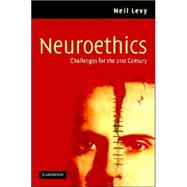
Note: Supplemental materials are not guaranteed with Rental or Used book purchases.
Purchase Benefits
What is included with this book?
| Preface | p. ix |
| Acknowledgements | p. xiv |
| Introduction | p. 1 |
| What is neuroethics? | p. 1 |
| Neuroethics: some case studies | p. 3 |
| The mind and the brain | p. 8 |
| Peering into the mind | p. 17 |
| The extended mind | p. 29 |
| The debate over the extended mind | p. 44 |
| Changing our minds | p. 69 |
| Authenticity | p. 73 |
| Self-knowledge and personal growth | p. 76 |
| Mechanization of the self | p. 78 |
| Treating symptoms and not causes | p. 81 |
| The presumption against direct manipulation | p. 88 |
| The treatment/enhancement distinction | p. 88 |
| Enhancements as cheating | p. 89 |
| Inequality | p. 91 |
| Probing the distinction | p. 94 |
| Assessing the criticisms | p. 103 |
| Conclusion | p. 129 |
| Reading minds/controlling minds | p. 133 |
| Mind reading and mind controlling | p. 133 |
| Mind control | p. 145 |
| Mind reading, mind controlling and the parity principle | p. 147 |
| Conclusion | p. 154 |
| The neuroethics of memory | p. 157 |
| Total recall | p. 159 |
| Memory manipulation | p. 171 |
| Moderating traumatic memories | p. 182 |
| Moral judgment and the somatic marker hypothesis | p. 187 |
| Conclusion | p. 195 |
| The "self" of self-control | p. 197 |
| The development of self-control | p. 203 |
| Ego-depletion and self-control | p. 206 |
| Successful resistance | p. 215 |
| Addiction and responsibility | p. 219 |
| The neuroscience of free will | p. 222 |
| Consciousness and freedom | p. 225 |
| Who decides when I decided? | p. 226 |
| Consciousness and moral responsibility | p. 231 |
| Moral responsibility without the decision constraint | p. 239 |
| Lessons from neuroscience | p. 243 |
| Neuroscience and the cognitive test | p. 246 |
| Neuroscience and the volitional test | p. 250 |
| Self-deception: the normal and the pathological | p. 258 |
| Theories of self-deception | p. 259 |
| Anosognosia and self-deception | p. 263 |
| Anosognosia as self-deception | p. 276 |
| Conclusion: illuminating the mind | p. 278 |
| The neuroscience of ethics | p. 281 |
| Ethics and intuitions | p. 282 |
| The neuroscientific challenge to morality | p. 288 |
| Responding to the deflationary challenge | p. 293 |
| Moral constructivism | p. 300 |
| Moral dumbfounding and distributed cognition | p. 307 |
| Distributed cognition: extending the moral mind | p. 308 |
| References | p. 317 |
| Index | p. 337 |
| Table of Contents provided by Ingram. All Rights Reserved. |
The New copy of this book will include any supplemental materials advertised. Please check the title of the book to determine if it should include any access cards, study guides, lab manuals, CDs, etc.
The Used, Rental and eBook copies of this book are not guaranteed to include any supplemental materials. Typically, only the book itself is included. This is true even if the title states it includes any access cards, study guides, lab manuals, CDs, etc.